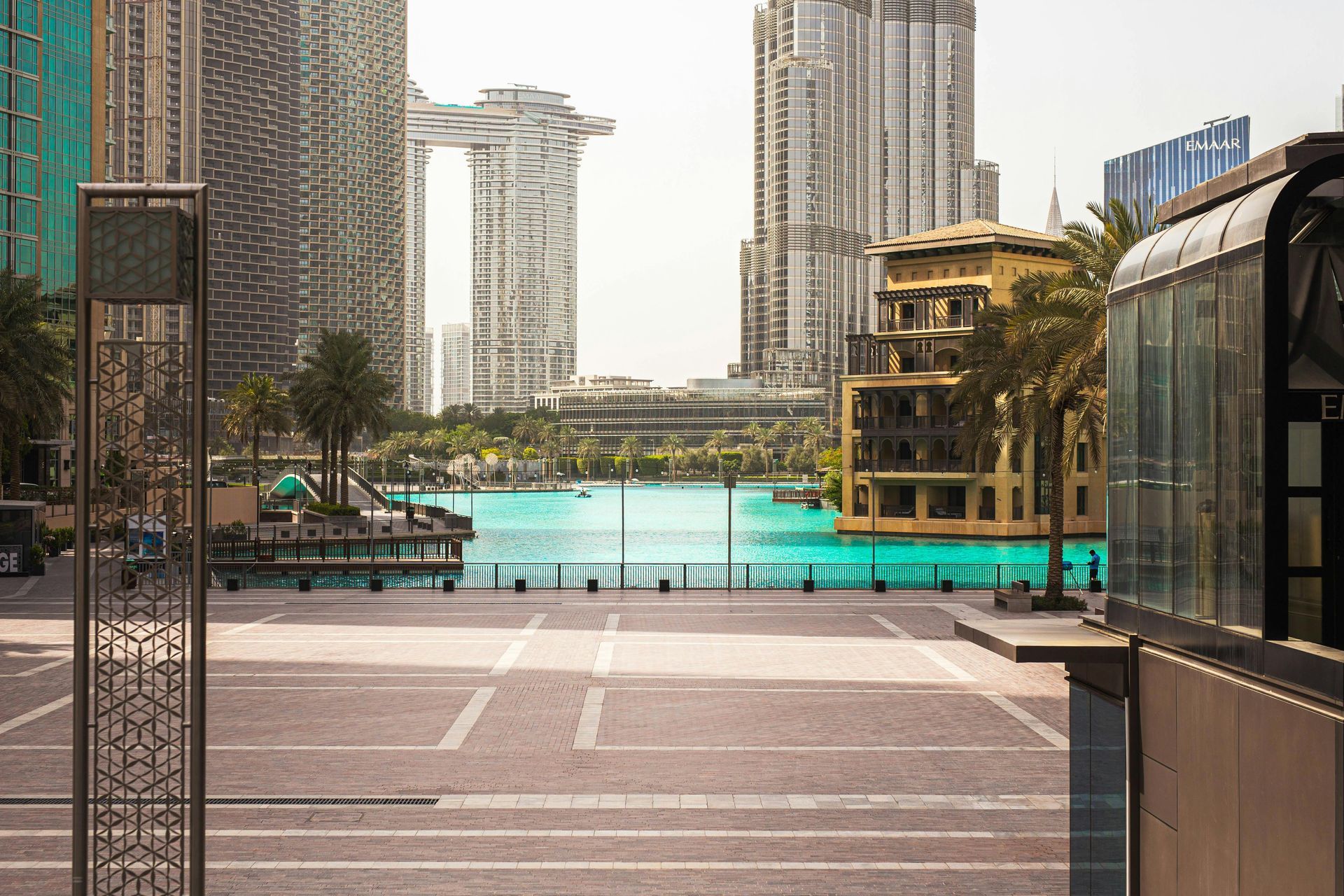Corporate Tax & UAE REITs: What Investors Must Know in 2025
June 19, 2025
Corporate Tax & UAE REITs: What Investors Must Know in 2025

Real Estate Investment Trusts, better known as REITs, have become an increasingly popular investment vehicle in the UAE. They offer attractive income returns, diversification, and access to high-quality real estate without the hassle of direct property ownership.
Contact us
Until recently, the UAE tax treatment of REITs wasn’t crystal clear under the new corporate tax regime introduced in 2023. Thankfully, that has now changed.
In May 2025, the UAE’s Federal Tax Authority (FTA) released new clarifications specifically aimed at REIT investors, outlining how corporate tax
applies and under what conditions REITs can continue to enjoy tax exemptions.
Here’s what this means if you invest in REITs, manage a REIT structure, or advise clients who do.
What Is a REIT?
Let’s start with the basics. A Real Estate Investment Trust is a company that owns or finances income-producing real estate. REITs pool money from multiple investors and distribute the rental income as dividends.
UAE REITs are regulated under Emirates Securities and Commodities Authority (SCA) guidelines and are designed to offer tax-efficient exposure to real estate, particularly in Dubai and Abu Dhabi.
Corporate Tax in the UAE: A Quick Recap
As of 1 June 2023, the UAE levies corporate tax at 9% on taxable income exceeding AED 375,000. While this doesn’t apply to personal income, investment structures—like REITs—fall within the scope of corporate taxation.
That raised a big question for investors: Will my REIT distributions now be taxed?
The FTA’s new clarification helps answer that.
FTA Clarification: When Are REITs Exempt from Corporate Tax?
The FTA has confirmed that REITs can qualify for tax exemption, but only under specific conditions. These include:
1. REIT Must Be a Qualifying Investment Fund
To qualify, the REIT must meet the definition of a Qualifying Investment Fund under the Corporate Tax Law. That means:
- The main activity must be investing in real estate.
- The fund must be widely held and regulated.
- There must be diversification in the portfolio.
2. Ownership Thresholds Must Be Met
The FTA requires that no single investor (other than a governmental entity) holds more than 50% of the REIT.
This is designed to ensure that REITs remain publicly accessible, rather than acting as tax shelters for large private investors or families.
3. Regulatory Approval & Oversight
The REIT must be regulated by a competent authority such as the SCA or the Dubai Financial Services Authority (DFSA). Self-managed or unregulated structures will not qualify.
4. Income Distribution Requirements
REITs must distribute at least 80% of their annual income to investors. This ensures that the tax benefit is passed on through regular distributions, rather than stockpiling profits inside the structure.
What This Means for REIT Investors
If you invest in a qualifying UAE REIT, your dividend income remains tax-free at the REIT level—just as before. However:
- If your REIT doesn’t meet the FTA’s exemption criteria, its profits may now be taxed at 9%.
- REITs may need to adjust their ownership structure, governance model, or payout ratios to retain their tax-exempt status.
- This is particularly relevant for family offices, HNW individuals, and private real estate funds who may have previously relied on lightly structured or bespoke REITs.
Practical Steps for REIT Managers and Investors
- Review REIT compliance with the exemption criteria, especially ownership and distribution policies.
- Structure new REITs carefully to meet FTA conditions from the outset.
- Audit governance and regulation, ensure your REIT is fully licensed and externally overseen.
- Inform investors proactively if their REIT is making changes to retain tax exemption status.
Final Thoughts
The UAE’s updated REIT tax guidance is good news for most investors, but only if the REIT ticks all the right boxes.
If you’re managing a REIT, investing in one, or thinking about setting one up, it’s essential to get the structure right. That’s where we come in.
Contact our Dubai or UK office today for tailored advice on structuring tax-efficient real estate investments under UAE law.
Whether you're a REIT manager, property investor, HNW individual, or adviser working with clients in the real estate sector, we can support you with practical, commercially focused guidance.
We're also open to collaboration with introducers and partners who need expert support in this area.

Navigating the UAE Employment Visa Process in 2026 Relocating to the United Arab Emirates for employment offers significant professional and financial opportunities. However, the UAE employment visa process is structured, compliance-driven and time sensitive. Understanding each stage in advance avoids unnecessary delays and protects both employer and employee from regulatory issues. Below is a comprehensive, easy-to-follow guide to the UAE employment visa process as it stands in 2026. Step 1: Securing a Confirmed Job Offer The UAE employment visa process begins with a formal job offer from a UAE-licensed entity. Only an employer registered with the relevant mainland authority or free zone authority can sponsor an employee. The employer becomes the visa sponsor and assumes legal responsibility for: Applying for the work permit Processing the residence visa Ensuring compliance with UAE labour law Covering government application fees (in most cases) Employees cannot independently apply for a standard employment visa without sponsorship. Step 2: Work Permit Application (Entry Permit Approval) Once the employment contract is signed, the employer applies for a work permit (also known as a labour approval) through the Ministry of Human Resources and Emiratisation (MOHRE) or the relevant free zone authority. Documents typically required include: Passport copy (valid for at least six months) Passport-size photographs Signed employment contract Attested educational certificates (if required for the role) If the employee is outside the UAE, an entry permit is issued, allowing them to enter the country legally for employment purposes. If the employee is already inside the UAE on a visit visa, status adjustment procedures apply. Step 3: Entry to the UAE (If Applying From Abroad) For applicants outside the UAE, the entry permit allows legal entry into the country. Once inside the UAE, the individual must complete the residency formalities within the validity period of the entry permit (usually 60 days). Timing is critical at this stage. Failure to complete the process within the permitted window may result in fines. Step 4: Medical Fitness Test All employment visa applicants must undergo a mandatory medical examination at an approved UAE medical centre. The test typically screens for: HIV Tuberculosis Hepatitis (in certain categories) The medical fitness certificate is a mandatory component of the residence visa application. Processing time: usually 24–72 hours depending on service speed selected. Step 5: Emirates ID Biometrics The applicant must apply for an Emirates ID, which serves as the UAE’s official identification card. This process includes: Biometric data capture (fingerprints and photograph) Identity verification The Emirates ID is linked directly to the residence visa and is essential for: Opening bank accounts Renting property Obtaining a driving licence Accessing utilities and telecom services Step 6: Residence Visa Stamping Following medical clearance and Emirates ID application, the residence visa is issued and stamped electronically against the passport record. Employment residence visas are typically valid for: 2 years (mainland companies) 2–3 years (depending on free zone authority) Once issued, the employee is legally resident in the UAE and may sponsor eligible dependants (subject to salary thresholds). Key Considerations in 2026 1. Free Zone vs Mainland Sponsorship Visa procedures differ slightly between mainland entities and free zone authorities. Free zones operate under independent regulatory frameworks, although federal immigration approval remains central. The choice between mainland and free zone employment has broader implications, including: Corporate structuring Tax residency status Social security considerations Family sponsorship options These should be assessed before finalising relocation plans. 2. Employment Visa vs Other UAE Visa Categories The UAE also offers: Green Visas (for skilled professionals and freelancers) Golden Visas (long-term residence for investors and high earners) Investor/Partner Visas For entrepreneurs and senior executives, an employment visa is not always the optimal route. Strategic structuring may offer longer validity and greater flexibility. 3. Tax Residency Implications The UAE does not levy personal income tax. However, relocating professionals must consider: Exit tax implications in their home country UK Statutory Residence Test (for British nationals) Split-year treatment Ongoing ties and centre-of-vital-interests rules Corporate tax exposure for business owners Inadequate pre-departure planning can result in unintended dual tax exposure. 4. Corporate Tax and Employment Structuring With the introduction of UAE Corporate Tax, business owners relocating to the UAE must assess: Whether they will remain directors of overseas entities Permanent establishment risks Substance requirements Intercompany arrangements Employment structuring must align with the broader corporate and tax strategy. Why a Structured Relocation Approach Matters Many professionals treat the employment visa as a simple administrative formality. In practice, it forms part of a much larger relocation framework that includes: Tax residency planning Wealth structuring Asset protection Banking arrangements Property acquisition Family visa coordination A piecemeal approach often creates long-term complications. How Mosaic Chambers Group Supports Your Move to the UAE At Mosaic Chambers Group, we provide integrated advisory services for internationally mobile individuals and entrepreneurs. We coordinate: Pre-departure UK tax planning UAE tax structuring advice Cross-border compliance Local regulatory compliance We work alongside trusted UAE-based partners to manage: Visa processing Company formation Corporate structuring analysis Family sponsorship applications Wealth protection strategies Relocating to the UAE should be strategic, compliant and financially efficient - not reactive. Speak to Our Advisory Team If you are considering accepting a UAE job offer or relocating your business operations to the Emirates, we recommend obtaining professional tax and structuring advice before finalising your move. Early planning protects your position, reduces risk and ensures your move to the UAE is commercially sound and fully compliant. Get in touch with our team today to begin your relocation strategy with clarity and confidence.

Thinking about moving to Dubai with your family?
We can help you assess eligibility, model the impact, and prepare a clear roadmap before you move.
Contact us to begin a confidential discussion.
Tailored advice for UK families, entrepreneurs, business owners and private wealth structures.
Cross‑border, multi‑jurisdict
